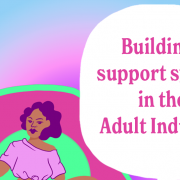Parenting as an Adult Industry Professional: Navigating Stigma and Strengthening Bonds
Parenting is a complex and challenging role that requires love, patience, and resilience.
For sex workers who are parents, these challenges are often compounded by societal stigma, legal issues, and the need for discretion. However, many adult industry professionals manage to navigate these obstacles with grace, ensuring their children grow up in nurturing and supportive environments. This blog explores the unique experiences of parents, who are also adult industry professionals, highlighting the realities they face and the strategies they employ to balance their profession with their caregiving responsibilities.
Understanding the Challenges
Sex workers who are parents often face a unique set of challenges, including:
Stigma and Judgment: Society often views sex work through a lens of moral judgment and prejudice, leading to widespread discrimination. This stigma can affect every aspect of a sex worker’s life, from social interactions to employment opportunities in other fields. The judgment often extends to their children, who may face bullying or exclusion due to their parent’s profession.
Secrecy and Safety: Maintaining confidentiality about their profession is crucial for many, to protect themselves and their families from harm or social ostracism. This secrecy can create a barrier between parents and their children, making it challenging to foster open and honest relationships.
Legal Concerns: In many places across the world, sex work is criminalized, creating significant legal risks. These legal ramifications can significantly disrupt family stability. Navigating a legal system that repeatedly discriminates against sex workers can be daunting and requires careful planning and awareness.
Emotional Labor: Balancing the emotional demands of work within the adult industry and the emotional needs of parenting can be exhausting. The dual roles require a significant amount of emotional labor and compartmentalization, which can take a toll on the mental health of parents.
Strategies for Navigating Parenthood
Despite the challenges, many adult industry professionals find ways to thrive as parents. Here are some strategies they employ:
Building a Support Network: Creating a reliable support system is crucial. This network can include friends, family, and other industry professionals who understand the unique challenges they face. Support groups specifically for sex worker parents can offer a safe space to share experiences and advice, reducing feelings of isolation and providing practical help.
Education and Advocacy: Educating themselves and their children about sex work can demystify the profession and reduce internalized stigma. This involves age-appropriate discussions with their children to foster understanding and acceptance. Advocacy for sex worker rights can also create broader societal change, making it safer and more acceptable for adult industry professionals to be open about their careers.
Open Communication: Maintaining open, age-appropriate honesty with children about their profession can foster trust and reduce feelings of secrecy. Many adult industry professionals choose to explain their job in terms children can understand, emphasizing safety, consent, and the importance of respecting others’ choices. This transparency can help children feel more secure and less confused about their parents’ work.
Legal Precautions: Understanding the legal landscape and taking proactive steps to protect their rights as parents is essential. This might involve consulting with legal professionals who specialize in sex worker rights and family law. Having a clear legal strategy can help mitigate risks related to custody and other legal challenges.
Self-Care: Prioritizing self-care is crucial for managing the stress of dual roles. This can include therapy, mindfulness practices, and setting boundaries to ensure they have time to recharge. Self-care enables parents to maintain their emotional well-being, which is essential for providing stable and loving care to their children.
Strengthening the Parent-Child Bond
Despite the challenges, the bond between parents and their children can be incredibly strong. Many sex workers bring unique strengths to their parenting:
Resilience and Adaptability: The resilience required to navigate the challenges of sex work can translate into parenting. Parents often model adaptability and perseverance for their children, demonstrating how to overcome adversity and remain steadfast in the face of challenges.
Empathy and Understanding: The experience of facing stigma can make parents more empathetic and understanding. They often instill these values in their children, fostering a compassionate and accepting family environment. This empathy extends to teaching children to be non-judgmental and supportive of others.
Advocacy Skills: Many sex worker parents are skilled advocates, both for themselves and for broader social change. These advocacy skills can empower their children to stand up for themselves and others, teaching them the importance of fighting for their rights and the rights of others.
Parenting as an adult industry professional involves navigating a complex web of challenges, but it also offers unique opportunities for personal growth and family bonding. By building supportive networks, advocating for their rights, and fostering open communication with their children, sex worker parents create loving and stable homes.
It’s essential to recognize and respect the resilience and dedication these parents bring to their roles, challenging societal stigma and working towards a more inclusive and understanding world. Through their strength and advocacy, parents not only provide for their families but also contribute to the broader fight for acceptance and equality.
If you want like-minded people to talk to, why not join one of our Support Groups. You can sign up here.








